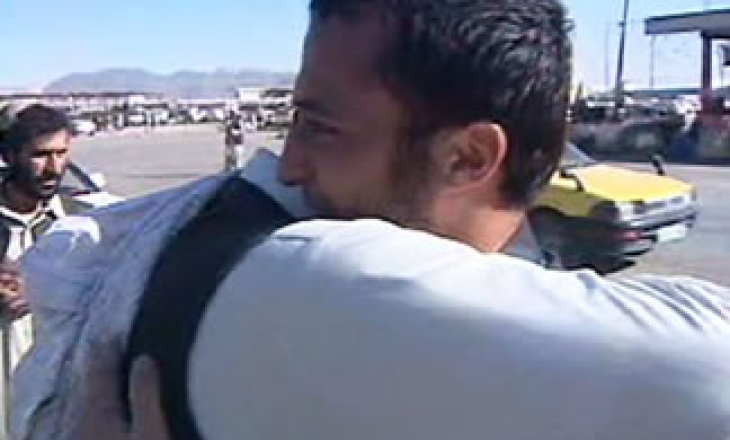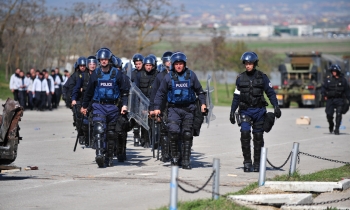Afghan freelance journalist Jawed Ahmad recently freed after spending 11 months in a US military prison says he was arrested at the suggestion of the Canadian forces. According to a Canadian Press report, Ahmad, known by the nickname Jojo among western journalists in Afghanistan, said, "It was Canadians who told them I was a risk."
Ahmad, 22, was detained October 26, 2007, at a NATO base near the city of Kandahar. He was later transferred to a detention centre at the US base at Bagram, north of Kabul. He was accused of having contacts with Taliban leaders, including possessing their phone numbers and video footage of them.
Ahmad, who worked for Canadian TV network CTV, was unexpectedly set free on Sunday, and a spokesman for the US-led coalition said he was no longer considered a threat. He made no mention of the alleged Canadian involvement in initial interviews after his release, but he now says his American interrogators told him it was the Canadians who fingered him.
Agence France-Presse (AFP) had more of his reactions:
"I want justice. I'll knock the doors of (U.S.) Congress, I'll go to (U.S. President George W.) Bush, I'll go to (Democratic presidential hopeful) Obama, to everywhere and everyone until I get justice. "I was tortured and jailed for 11 months and 20 days for doing nothing," he said in Kabul. "They have destroyed my future, my soul. I'll fight until they apologise to me and give me back what I have lost," he said.
Asked how he would fight, Ahmad said: "I'm not a terrorist, I have never been a terrorist. I'm a journalist. With the help of other journalists and human rights (organisations), I'll fight for my rights." Ahmad said that while in prison, US interrogators had questioned him about his relations with Taliban, a militant group that thousands of US troops along with other international forces have been fighting in Afghanistan since 2001. The reporter said his "torture" included nine days of sleep deprivation at the NATO-led military base in Kandahar where he was also forced to stand barefoot in the snow.
"The US military must yet again recognise that it abused its authority by detaining an innocent journalist," Reporters sans Frontières (RSF) said. "Despite having no evidence, the US military in Afghanistan and Iraq arrests and mistreats locals employed by the international media whose only crime is to work in war zones. The US government should investigate this case and at the very least compensate Ahmad. We hail the US organisations that took the decisive step of bringing a lawsuit before the US courts."
The lawsuit filed in the United States by several organisations in June called on US President George W Bush and defence secretary Robert Gates to charge Ahmad or release him. A US officer told Agence France-Presse that Ahmad was handed over to the Afghan authorities on September 22 "under a reconciliation programme." The US military originally claimed that Ahmad was an "illegal enemy combatant." Last February, a spokesman for the US military in Afghanistan, said his case was being examined by "an enemy combatant review board."
The New York-based Committee to Protect Journalists (CPJ) also welcomed his release. “We are relieved that Jawed Ahmad has been freed and we wish him the best with his return to work,” said Bob Dietz, CPJ’s Asia Programme Coordinator. “But he has lost almost a year of his life being held without charge and says he was brutally treated by his captors. His case adds to the US military’s appalling record of detaining working journalists in conflict zones, without a modicum of due process, based on allegations which are shrouded in secrecy and have apparently proved to be unfounded.”
CPJ research shows that at least one other journalist remains in US military custody. Freelance photographer Ibrahim Jassam, who was working for Reuters in Iraq, was detained September 2 by US and Iraqi forces; he has not been charged. The US has held dozens of journalists in Iraq, at least 10 of them for prolonged periods, according to CPJ research.
Associated Press photographer Bilal Hussein was released in April after a two-year detention on unsubstantiated allegations of collaborating with local insurgents. On May 1, Sami al-Haj, a Sudanese cameraman for Al-Jazeera, was released from the US Naval Base at Guantanamo Bay, Cuba, after six years in detention. Al-Haj, also designated an “enemy combatant,” was never charged with a crime.










